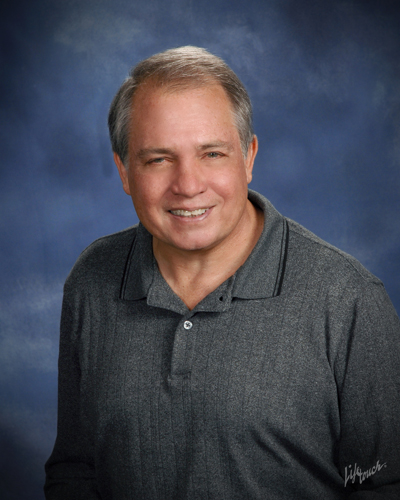“A Piece of My Mind”
January, 2016 Newsletter from
Donald Shoemaker
Advancing Christian Faith and Values,
Defending Religious Liberty for All,
Supporting Civility and the Common Good
through Preaching, Teaching, Writing,
Activism and Reasoned Conversations
New Year’s Resolutions for the Christian Community
“3 R’s” (expanded) for better church life in the New Year—
Reformation – Have we examined our belief system as to how biblical it really is? “Statements of Faith” need periodic revision—they are not inspired scripture. How well do we communicate our beliefs? Clearly and crisply for our usual audiences?
Revival – Are our hearts in tune with God and zealous for his will? I pray for one more big revival in my lifetime, like the “Jesus Movement” of the 60-70’s.
Renewal – Is “how we do things” really the best and most effective? When is the last time we’ve reviewed our church’s constitution, bylaws and policies? Do they have an outward perspective to our community and world as well as a good inward perspective? How renewed are our worship services?
Message of the Month— “International Pastoral Leadership” (being a pastor who’s “really there”)
 “In the beginning was the Word, and the Word was with God, and the Word was God.”
“In the beginning was the Word, and the Word was with God, and the Word was God.”
“The Word became flesh and made his dwelling among us. We have seen his glory, the glory of the one and only Son, who came from the Father, full of grace and truth.”
– John 1:1, 14 (New International Version)
The greatest message of the Christmas Season just behind us is that God, in his son Jesus, has entered into our human experience. The “Word” (God’s self-communication, self-disclosure) is Jesus. He not only existed from the beginning “with” God, he himself “is” God. All the essential attributes God has, all that we can correctly postulate about God, his Word possesses as well.
God’s “Word” didn’t just remain in God’s presence where he could enjoy his glory and avoid the messiness of human encounter. He became “one of us” to communicate his Heavenly Father to us.
Now, from this thought I draw an important conclusion about high-quality pastoral leadership. Pastors should be “one with the people”, not distant from or above them. I call this “Incarnational Leadership”. As Jesus shepherded his flock by being close to them, so pastors should follow his example.
Which brings us to a modern trend that I think is awful.
Thom Rainer, outstanding analyst and advisor on church trends, speaks of a major trend. Whereas 10 years ago 99% of churches were single-site churches, now there is a large shift to multi-site venues. Now 62% of mega-churches are multi-site and, “More and more medium and small churches are moving to this model as well.” *
Nothing intrinsically wrong with this and there are practical reasons for doing so—better outreach opportunities and moving beyond property limitations being two good ones.
But one increasing practice really concerns me: Projecting the message of a distant pastor to satellite venues instead of having the spiritual messenger right there before the people.
Perhaps this has merit on unique occasions. But a stead diet of this goes contrary to the incarnational ministry I want to aspire to as an under-shepherd of Jesus, our Chief Shepherd.
And I want to add very cautiously (because I know this negative is far from the heart of many a pastor) – I think ego often plays a role. Pastors may want to expand their own stage presence rather than have lesser mortals assume a speaking role at these satellite locations. I mean, who can preach better than that mega-pastor, without whom there is no massive church, and around whom the church revolves?
We pastors sometimes need a dose of the Apostle Paul’s warnings against being lifted up with pride (Romans 12:3 and 1 Timothy 3:6). A man named Diotrephes,“who likes to put himself first” (3 John 9-10 ESV), may have been the first church leader with an ego problem, but he certainly wasn’t the last.
 Unless the speaker is close by, don’t expect his words to address your community context very closely. And don’t expect the “virtual pastor” to be there for you in the hour of need.
Unless the speaker is close by, don’t expect his words to address your community context very closely. And don’t expect the “virtual pastor” to be there for you in the hour of need.
I’m glad that “God so loved the world  thathe sent his only begotten son” (John 3:16) rather than transmitting the likeness of one who wasn’t really with us.
thathe sent his only begotten son” (John 3:16) rather than transmitting the likeness of one who wasn’t really with us.
* Thom Rainer, “Two Major But Under the Radar Changes in American Churches” (December 7, 2015) www.thomrainer.com
Serving God by Bringing Water to the People
“From your lofty abode you water the mountains;
the earth is satisfied with the fruit of your work.”
– Psalm 104:13
 “And Isaac dug again the wells of water that had been dug in the days of Abraham his father, which the Philistines had stopped after the death of Abraham… But when Isaac’s servants dug in the valley and found there a well of spring water, the herdsmen of Gerar quarreled with Isaac’s herdsmen, saying,
“And Isaac dug again the wells of water that had been dug in the days of Abraham his father, which the Philistines had stopped after the death of Abraham… But when Isaac’s servants dug in the valley and found there a well of spring water, the herdsmen of Gerar quarreled with Isaac’s herdsmen, saying,
‘The water is ours.’…Then they dug another well, and they quarreled over that also.”
– Genesis 26:18-21 ESV
“There was no water for the people to drink. Therefore the people quarreled with Moses and said, ‘Give us water to drink.’ And Moses said to them, ‘Why do you quarrel with me? Why do you test the Lord?’” – Exodus 17:1-2
From earliest Bible times people have argued over water rights and become frustrated and angry when water wasn’t readily available.
God waters the mountains (Psalm 104:13), which for us who live in California are the Sierra Nevada. Where the water goes from there is very much up to us. That’s where people like Harry Saltzgaver enter the picture.
 Harry Saltzgaver is Editor-in-Chief of the Grunion Gazette, a weekly Long Beach-area newspaper. He is a committed Christian and for 12 years has been a faithful and active member of Grace Community Church of Seal Beach. He has served in many community roles.
Harry Saltzgaver is Editor-in-Chief of the Grunion Gazette, a weekly Long Beach-area newspaper. He is a committed Christian and for 12 years has been a faithful and active member of Grace Community Church of Seal Beach. He has served in many community roles.
This column focuses on Harry’s role as a member of Long Beach’s Board of Water Commissioners, to which he was appointed by the mayor in 2012.
Mr. Saltzgaver responds here to my questions (emphasesand brackets mine).
How has your Christian faith motivated and guided you in your water conservation work?
I believe my motivation to serve on the Water Commission (and other civic involvement) has been an effort to practice servant leadership. There is no Christian evangelism, but there is an opportunity to demonstrate ethical, Christian-based decision-making.
How does water makes it to our taps in Southern California?
Two ways.First, pumping of groundwater from underground aquifers. Most cities don’t have this option, but Long Beach is fortunate to have groundwater supply 60% of our water.
Second, importing water. The Metropolitan Water District (MWD) is the water wholesaler importing water for southern California, taking from two sources. California has rights to Colorado River water, and brings water from Lake Havasu (below Hoover Dam) to the Los Angeles area via the Colorado River Aqueduct.
 The second source of imported water is the State Water Project through the Sacramento River Delta. The starting point for this water is the mountains around Lake Oroville in northern California… [From Lake Oroville the water travels eventually to the Delta east of San Francisco Bay.] Pumps at the Delta take water and put it into the California Aqueduct to make its way south.
The second source of imported water is the State Water Project through the Sacramento River Delta. The starting point for this water is the mountains around Lake Oroville in northern California… [From Lake Oroville the water travels eventually to the Delta east of San Francisco Bay.] Pumps at the Delta take water and put it into the California Aqueduct to make its way south.
Why is the level of Lake Oroville important to us in S. Cal?
Lake Oroville stores water for release, particularly in the dry summer months. If the lake is too low going into the dry part of the year, water cannot be released and pumped south. That virtually eliminates an important source of water. Last summer, the State Water Project allocation to MWD was 10% of normal.
 What are the main reasons for waste?
What are the main reasons for waste?
The number one area of waste is outdoor irrigation. Fully 3/4 of the water used in southern California was outdoor use before the current drought began. There still is significant overwatering and large areas of turf.
There also can be significant water waste inside. Leaving water running — to get it warm, while shaving or brushing your teeth, long showers — is a waste. Another issue is undetected leaks.
What’s going to happen if our water reserves get worse?
Water could be virtually rationed by cities or utilities. In other words, customers would be allowed use of a certain amount of water at a normal price, but any extra water use would mean punitive pricing.
What steps can residents take to reduce residential water waste?
Eliminate or reduce turf. Use more efficient outdoor irrigation (drip vs. sprinkling; “smart” sprinkler controls). Use water-efficient appliances and use them properly — run dishwashers when full, set clothes washers at appropriate levels, consider low-flow faucets, toilets.
Most importantly, be aware. Use water like the precious resource it is.
How will the “El Niño” phenomenon help our water crisis?
It depends. It definitely should reduce water use locally with rain, and it could help refill some reservoirs. The big question is whether the weather systems will return snow to the mountains in northern California. The snowpack is by far California’s largest reservoir. A good snow year will allow the extremely low reservoirs to recover and maintain some of that recovery.
 What else would you like to say?
What else would you like to say?
This lack of water is not a short-term problem. This is a wake-up call pointing to a need to make changes in the way we live. Water is a precious and limited resource in Southern California, and we need to treat it that way.
There is a Christian response to this issue. God has provided us with the necessities of life. It is our job to be good stewards of those resources.
I consider it to be a privilege and a responsibility to help our community do just that.



